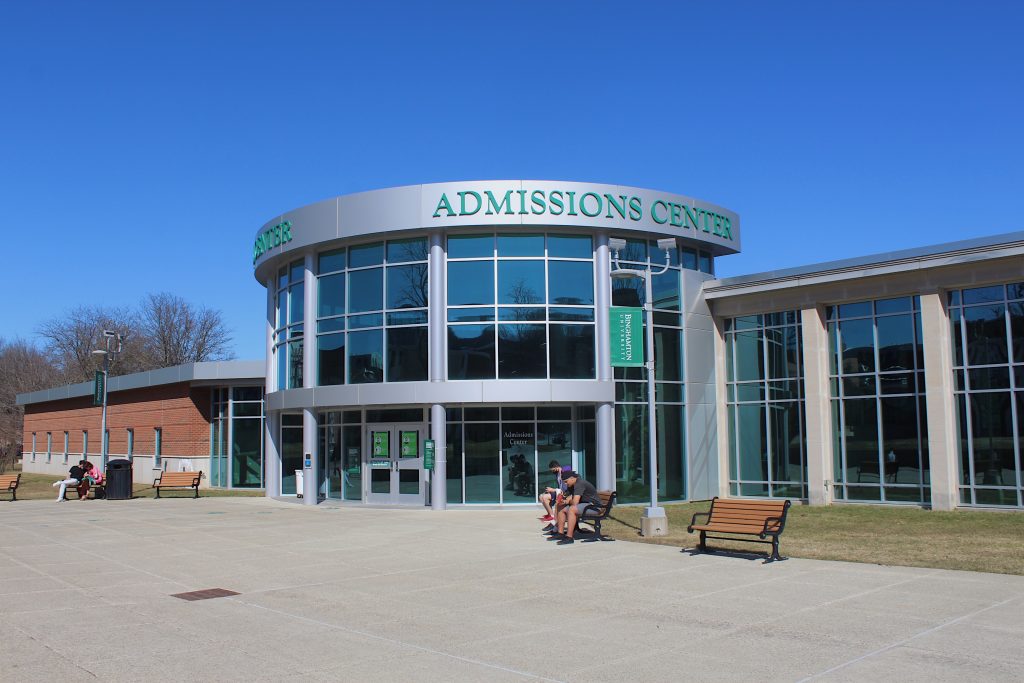Members of Binghamton University’s Student Association (SA) are calling for the addition of a required race and diversity education program to new student orientations.
The resolution was presented at the SA Congress meeting on March 9 over Zoom. It is hoped that the implementation of this seminar will improve students’ understanding of the importance of equity and inclusion, both on campus and in the wider world. David Hatami, SA vice president for multicultural affairs (VPMA) and a junior double-majoring in political science and business administration, said he hopes BU’s administration begins to pursue implementing diversity education for incoming students.
“I think the proposal is an important one, as well as one which the administration should take and consider seriously,” Hatami wrote in an email. “It is for this reason, among others, I have sponsored the resolution. Diversity education is something which is desperately needed at not just our University but all other colleges in the nation. Too many times have I been approached by students due to instances of inappropriate dialogue and/or racist remarks. New student orientation is the perfect space to install such a course, as it can accompany other courses, such as 20:1, quite well.”
The initiative precedes the massacre in Atlanta involving the murders of six Asian women, but it follows months of heightened violence against Asians and Asian Americans, as well as a summer of resistance to police violence against Black Americans. Eden Greenberg, a representative of the SA Congress, author of the resolution and a sophomore majoring in human development, expressed the importance of making this program an integral part of a student’s introduction to campus culture.
“We hope that this will show students how pressing diversity and inclusion are on this campus and why their awareness is extremely important,” Greenberg said. “If this were implemented, I think it would prove that issues concerning discrimination and justice were top priorities for our school.”
The University offers educational programs about racial injustice on campus, including the reading, viewing and discussions of “Just Mercy: A Story of Justice and Redemption” by Bryan Stevenson, which ran in accordance with the new-student initiation process of last year’s fall semester, and the ongoing racial healing dialogue series. These programs have not been mandatory for students to attend.
Sabrina Benchaabane, an undeclared freshman, said she believes there is a lack of racial education on campus, which might be fulfilled by a required and up-front introduction to diversity and inclusion.
“Personally, I don’t think [BU] is doing enough to educate its students on issues of racial injustice,” Benchaabane said. “The ‘Just Mercy’ readings in the beginning of the year weren’t mandatory, and most of the people I know didn’t bother to do the reading, especially because the school didn’t end up sending each student a copy.”
George Lee, an undeclared freshman, said that while he felt his education had prepared him to explore issues of race in conversation, he did not think other students were inclined to do the same.
“Those who did not have them also do not want to have these hard conversations,” Lee said. “Often they skip them. These events are not interesting for students because they seem more like graded discussions than open conversations. They do not educate people at all to the extent of change on campus because they do not integrate it into classes.”
Jackie Brandel, an undeclared freshman, agreed that the incorporation of race education into required campus programming could alter campus culture for the better.
“Especially in a [predominantly white institution], I think an amazing thing for the school to require is a one- or two-credit course on race because racist/culturally insensitive college students are just going to become racist/culturally insensitive doctors, scientists, teachers, et cetera,” Brandel wrote in an email. “More needs to be done.”
Greenberg said she believes that the SA’s initiative can help resolve some of the places where the University has fallen short in terms of compelling students to think about race.
“The University does a lot of preaching about diversity, equity and inclusion but few initiatives are truly publicized and available to the community public,” Greenberg wrote. “We wanted something that would be available to all students that people would not need to seek out.”
Greenberg is hopeful that the administration will seize the opportunity to be a part of the impulse for positive change.
“We want to stand for something bigger than ourselves, and, if we feel we cannot do much to help enact change, I know we can all vow to learn more,” Greenberg wrote. “That is always the first step. I really hope this training can continue and be available for students throughout the school year and their time here at BU.”



